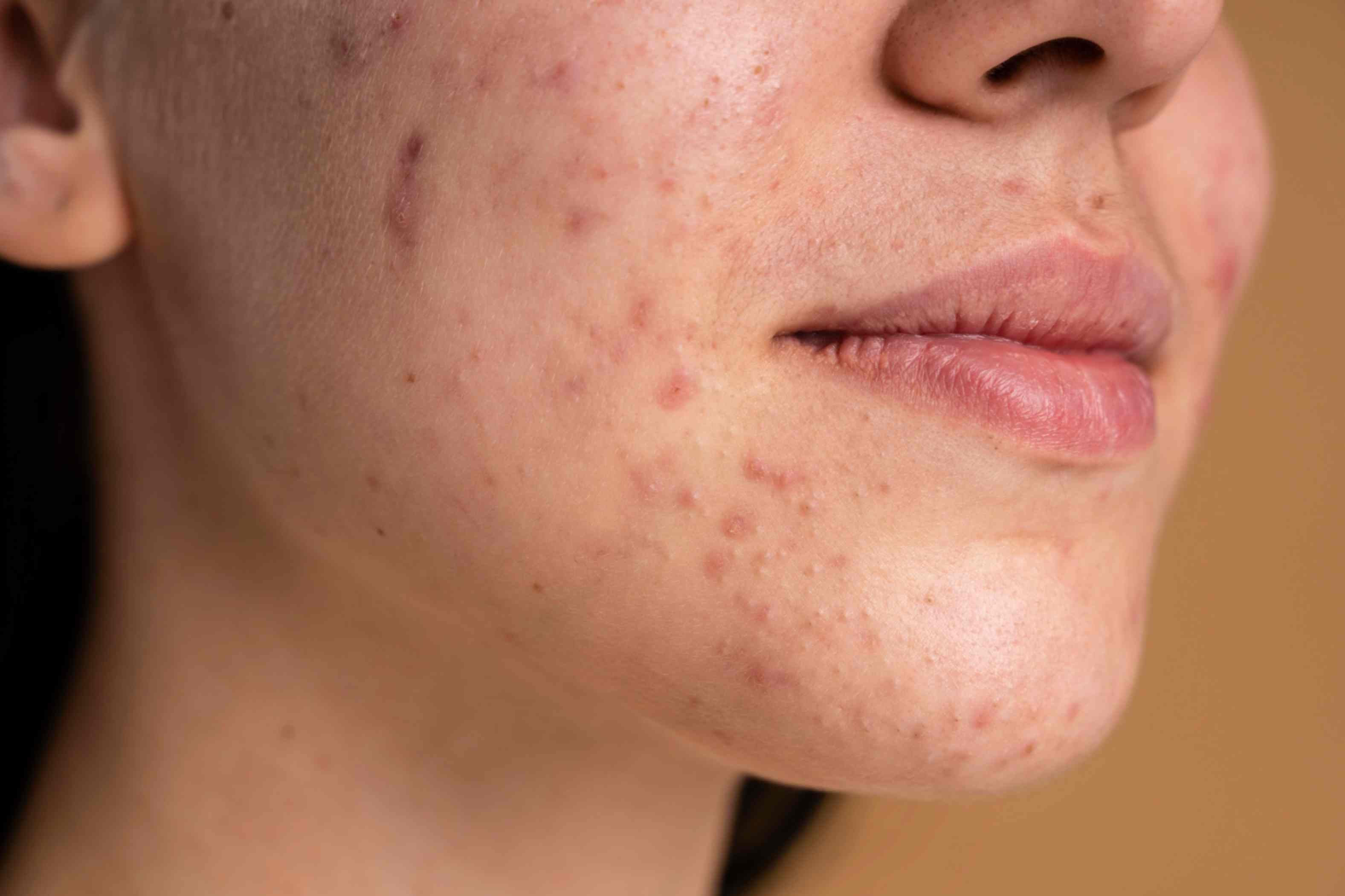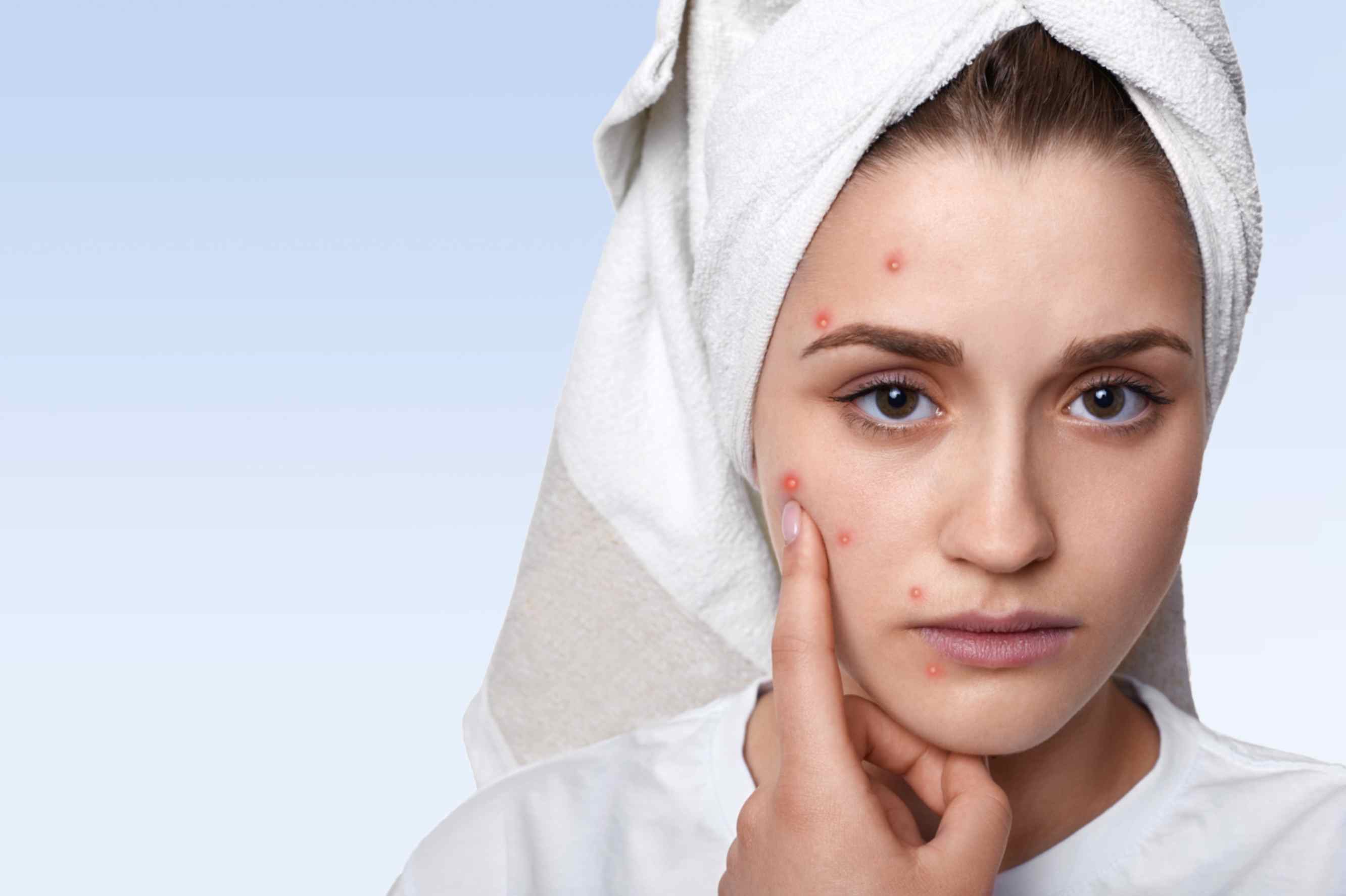Pigmentation and acne are two distinct skin concerns that can affect individuals separately or sometimes concurrently. Let’s understand each of them.
What is Pigmentation ?

Pigmentation refers to the colouring of the skin caused by the presence of melanin, a natural pigment responsible for the colour of our hair, skin, and eyes. Skin pigmentation can vary from person to person, and certain factors can lead to abnormal pigmentation.
There are mainly 2 types of pigmentation.
Hyperpigmentation:
This occurs when certain areas of the skin become darker than the surrounding skin due to an overproduction of melanin. It can be caused by sun exposure, hormonal changes, skin injuries, and certain medications.
Hypopigmentation:
This occurs when certain areas of the skin become lighter or depigmented due to a reduction in melanin production. It can be caused by skin conditions, injuries, or genetic factors.
What is Acne?

Acne is a skin condition that occurs when hair follicles become clogged with oil and dead skin cells, leading to the formation of pimples, blackheads, and whiteheads. Acne is commonly associated with hormonal fluctuations during puberty, but it can affect people of all ages and is influenced by various factors, such as:
- Excessive Sebum Production: Overactive sebaceous glands can lead to an accumulation of oil on the skin’s surface, contributing to acne formation.
- Bacteria: The presence of Propionibacterium acnes (P. acnes) bacteria on the skin can exacerbate inflammation and acne development.
- Hormonal Fluctuations: Hormonal changes, such as during puberty, menstrual cycles, or pregnancy, can trigger acne breakouts.
- Diet and Lifestyle: Diet, stress, and certain lifestyle factors can also impact acne.
While pigmentation and acne are different skin concerns, they can sometimes be related. Inflammatory acne lesions (papules, pustules) can leave behind temporary or permanent dark spots known as post-inflammatory hyperpigmentation (PIH). PIH occurs due to increased melanin production in response to inflammation caused by acne.
Now let us dive deeper and see what kind of products would help in treating acne and pigmentation problem.
- Face wash: When choosing a face wash for pigmentation and acne, it’s essential to select products that address both concerns while being gentle on the skin. Look for face washes that contain effective ingredients to tackle hyperpigmentation and acne, without causing excessive dryness or irritation.
- Face serum: When choosing a face serum to target both pigmentation and acne concerns, it’s essential to look for products that contain specific ingredients known for their effectiveness in addressing these issues. Some of the key ingredients are vitamin c, niacinamide, alpha hydroxy acids (AHAs), salicylic acid, licorice extract, retinol and tea tree oil. All of these ingredients have properties to fight skin pigmentation and acne related issues making it look healthy and shiny
- Face cream: There are several face creams that claim to be good for acne and pigmentation. But t’s essential to look for products that can effectively address both concerns without causing further irritation or clogging pores. It is recommended to consider creams that are non-comedogenic, has gentle formulation, tested well and prescribed by experts. It should also compliment other products like sunscreens, face wash etc. to fit well into the skin care routine.
- Toner: Using a toner for pigmentation and acne can be beneficial for several reasons. Toners are liquid-based skincare products that are designed to be applied after cleansing and before other skincare treatments like serums and moisturizers. When it comes to addressing pigmentation and acne concerns, toners can play a crucial role in improving the overall health and appearance of the skin.
- Face Mask: Face mask for pigmentation and acne is a beneficial addition to the skincare routine. Face masks are concentrated treatments that are applied to the skin and left on for a specific period to deliver targeted benefits. For pigmentation and acne, it Is better to look for masks that contain ingredients like vitamin C, niacinamide, glycolic acid, salicylic acid, licorice extract, or soothing botanicals. Additionally, be mindful of the mask’s instructions and frequency of use, as some masks may be too harsh for daily use.
- Face and Body Scrub: Face and body scrub can offer several benefits when incorporated into a well-rounded skincare routine. Scrubs are designed to exfoliate the skin remove dead skin cells, dirt, and excess oil from the surface. Scrubs can gently dislodge debris and sebum from pores, helping to keep them clean and minimize the formation of blackheads and whiteheads.
- Body lotion: Body lotions are primarily known for moisturizing and hydrating the skin, certain formulations can also help address pigmentation and acne concerns. However, body lotions should be part of a comprehensive skincare routine that includes cleansing, exfoliating, and sun protection.
Conclusion
A patch test before using any product is a must. All of these products are available in this brand called WOW which is amazing and uses all natural ingredients. The range of WOW skin care products are easy to use, gentle on the skin and super effective showing results in just a few applications. Don’t forget to try out these products and include them in your daily skincare routine.
If you have severe pigmentation or acne concerns on your body, consider consulting a dermatologist for personalized recommendations and treatment options from the experts. Be consistent and take care of your skin in all seasons!
FAQs
1. What is pigmentation, and what causes it?
Pigmentation refers to the color of the skin caused by melanin. It can be caused by factors like sun exposure, hormonal changes, skin injuries, and medications.
2. What are the two types of pigmentation?
The two types of pigmentation are hyperpigmentation (darker patches) and hypopigmentation (lighter or depigmented areas).
3. What is acne, and how does it form?
Acne is a skin condition where hair follicles become clogged with oil and dead skin cells, leading to pimples, blackheads, and whiteheads. It is often caused by hormonal fluctuations, excessive sebum production, bacteria, diet, and lifestyle factors.
4. How are pigmentation and acne related?
Inflammatory acne lesions can lead to temporary or permanent dark spots known as post-inflammatory hyperpigmentation (PIH).
5. What ingredients should I look for in a face wash for pigmentation and acne?
Look for gentle face washes containing ingredients like salicylic acid, glycolic acid, or tea tree oil to address acne. For pigmentation, ingredients like licorice extract and niacinamide can be helpful.
6. What are some key ingredients to consider in a face serum for pigmentation and acne concerns?
Consider face serums with vitamin C, niacinamide, alpha hydroxy acids (AHAs), salicylic acid, retinol, and tea tree oil for their effectiveness in addressing pigmentation and acne issues.
7. How should I choose a suitable face cream for both pigmentation and acne?
Look for non-comedogenic and gentle formulations recommended by experts, which can effectively address both concerns without causing irritation or clogging pores.
8. What benefits can toners provide for pigmentation and acne?
Toners can improve overall skin health and appearance. Look for toners with ingredients like witch hazel, rose water, or niacinamide for added benefits.
9. Are face masks helpful for pigmentation and acne?
What ingredients should I look for? Yes, face masks can be beneficial. Look for masks with ingredients like vitamin C, niacinamide, glycolic acid, salicylic acid, or soothing botanicals.
10. How can face and body scrubs help with pigmentation and acne?
Scrubs can exfoliate the skin and help remove dead skin cells and excess oil, keeping pores clean and minimizing blackheads and whiteheads.
11. Can body lotions address pigmentation and acne concerns?
While body lotions primarily moisturize the skin, certain formulations can help with pigmentation and acne when used as part of a comprehensive skincare routine.
12. What brand offers natural skincare products for pigmentation and acne?
WOW is a brand that offers a range of natural skincare products known for being gentle, effective, and easy to use.
13. Should I consult a dermatologist for severe pigmentation or acne concerns?
Yes, if you have severe concerns, it’s advisable to consult a dermatologist for personalized recommendations and treatment options.
14. Can I use WOW products on my body for pigmentation and acne concerns?
Yes, WOW products are designed for various skin concerns and can be used on the body as well. Always follow the instructions and do a patch test before use.